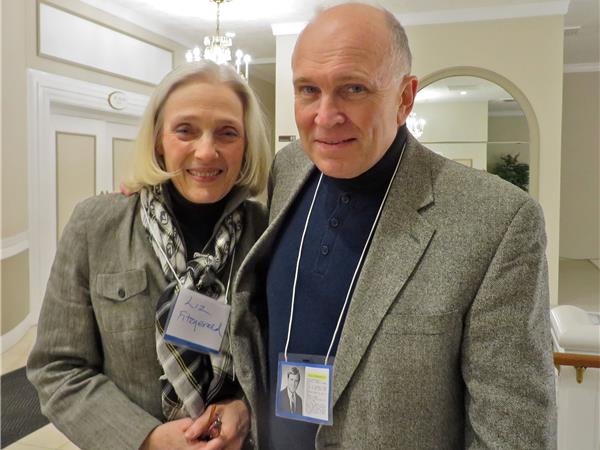
Zbigniew Brzezinski, Jimmy Carter and Cyrus Vance 14 August 1977
(Image by President (1977-1981 : Carter). White House Staff Photographers.) Details DMCA
"If, after the inauguration, you find a Cy Vance as Secretary of State and Zbigniew Brzezinski as head of National Security, then I would say we failed. And I'd quit. But that's not going to happen. You're going to see new faces, new ideas. The government is going to be run by people you have never heard of." Hamilton Jordan, President Carter's Chief of Staff
Conor Tobin's January 9, 2020 Diplomatic History [1] article titled: The Myth of the 'Afghan Trap': Zbigniew Brzezinski and Afghanistan[2] attempts to "dismantle the notion that President Jimmy Carter, at the urging of National Security Advisor Zbigniew Brzezinski, aided the Afghan Mujahedin intentionally to lure the Soviet Union into invading Afghanistan in 1979." As Todd Greentree acknowledges in his July17, 2020 review of Tobin's article, the stakes are high because the "the notion" calls into question not just President Carter's legacy, but the conduct, the reputation and the "strategic behavior of the United States during the Cold War and beyond."[3]
Central to the issue of what Tobin refers to as "the Afghan Trap thesis," is French journalist Vincent Jauvert's infamous January 1998 Nouvel Observateur interview with Brzezinski in which he brags about a secret program launched by him and President Carter six months before the Soviet invasion "that had the effect of drawing the Russians into the afghan trap-- "According to the official version of history, CIA aid to the Mujahideen began during 1980, that is to say, after the Soviet army invaded Afghanistan, 24 Dec 1979. But the reality, secretly guarded until now, is completely otherwise." Brzezinski is on record as saying. "Indeed, it was July 3, 1979 that President Carter signed the first directive for secret aid to the opponents of the pro-Soviet regime in Kabul. And that very day, I wrote a note to the president in which I explained to him that in my opinion this aid was going to induce a Soviet military intervention."[4]
Despite the fact that the secret program had already been revealed by the CIA's former chief of the directorate of Operations for the Near East and South Asia Dr. Charles Cogan and former CIA Director Robert Gates and was largely ignored, Brzezinski's admission brings attention to a glaring misconception about Soviet intentions in Afghanistan that many historians would rather leave unexplained. From the moment Brzezinski's interview appeared in 1998 there has been a fanatical effort on both the left and the right to deny its validity as an idle boast, a misinterpretation of what he meant, or a bad translation from French to English. Brzezinski's admission is so sensitive amongst the CIA's insiders, Charles Cogan felt it necessary to come out for a Cambridge Forum discussion of our book on Afghanistan (Invisible History: Afghanistan's Untold Story)[5] in 2009 to claim that even though our view that the Soviets were reluctant to invade was authentic, Brzezinski's Nouvel Observateur interview had to be wrong.
Tobin expands on this complaint by lamenting that the French interview has so corrupted the historiography as to have become the almost sole basis to prove the existence of a plot to lure Moscow into the "Afghan Trap." He then goes on to write that since Brzezinski asserts the interview was technically not an interview but excerpts from an interview and was never approved in the form it appeared and that since Brzezinski has subsequently repeatedly denied it on numerous occasions-- the 'trap' thesis has little basis in fact."[6] Tobin then proceeds to cite official documents to prove "Brzezinski's actions through 1979 exhibited a meaningful effort to dissuade [emphasis added] Moscow from intervening" In sum, a Soviet military intervention was neither sought nor desired by the Carter administration and the covert program initiated in the summer of 1979 is insufficient to charge Carter and Brzezinski with actively attempting to ensnare Moscow in the 'Afghan trap.'"
So what does this reveal about a secret U.S. government operation taken six months prior to the Soviet invasion of December 1979 and not bragged about by Brzezinski until January of 1998?
To summarize Tobin's complaint; Brzezinski's alleged boast of luring the Soviets into an "Afghan trap" has little basis in fact. Brzezinski did say something but what-- is not clear, but whatever he said, there is no historical record of it and anyway it wasn't enough to lure the Soviets into Afghanistan because he and Carter didn't want the Soviets to invade anyway because it would jeopardize de'tente and the SALT II negotiations. So what's all the fuss about?
Tobin's assumption that the President of the United States and his CIA would never intentionally set out to exacerbate the Cold War in the middle of such a hostile environment, may reveal more about Conor Tobin's bias than his understanding of what Brzezinski's strategy of confrontation was all about. To read his article is to step through the looking glass into an alternative universe where (to paraphrase T.E. Lawrence) facts are replaced by daydreams and the dreamers act-out with their eyes wide open. From our experience with Afghanistan and the people who made it happen, Tobin's "valuable service of traditional diplomatic history" (as quoted from Todd Greentree's review) does no service to history at all.
Next Page 1 | 2 | 3 | 4 | 5 | 6 | 7 | 8 | 9 | 10 | 11 | 12 | 13 | 14 | 15 | 16 | 17 | 18
(Note: You can view every article as one long page if you sign up as an Advocate Member, or higher).





